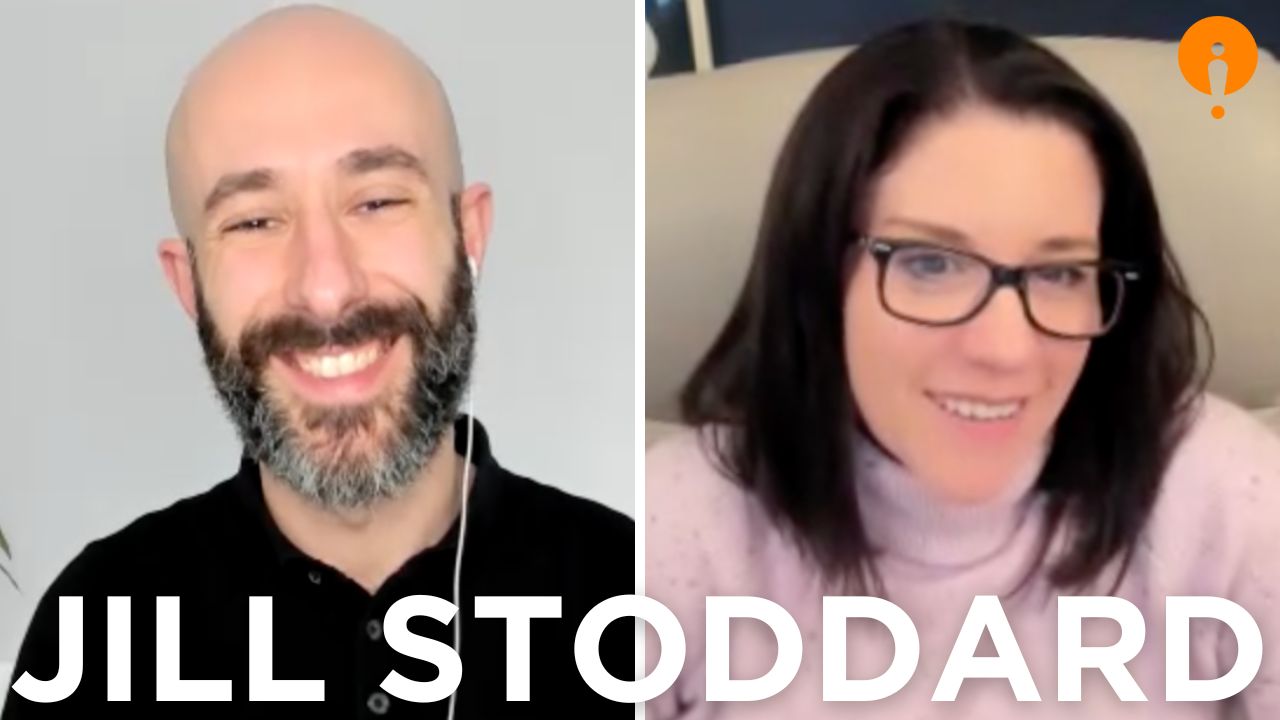
Many high achievers believe that success will silence self-doubt. But what if the opposite is true? What if the more we accomplish, the more likely we are to feel like we don’t belong?
I recently had the pleasure of interviewing Dr. Jill Stoddard, TEDx speaker, psychologist, and author of Imposter No More. We explored why so many people – even those at the top of their game – struggle with imposter feelings, and how leaders can create cultures that encourage vulnerability and self-compassion.
Here are the key takeaways from our conversation.
It’s Not “Imposter Syndrome” – And Here’s Why That Matters
Jill makes an important distinction: she doesn’t call it imposter syndrome. Instead, she prefers imposter phenomenon or imposterism – and for good reason.
The term syndrome suggests a disorder, something broken that needs to be fixed. But imposter feelings aren’t a disease. Research shows that up to 70% of people experience them at some point in their lives. If most of us feel this way, then it’s not a pathology – it’s part of being human.
And here’s another crucial point: imposter feelings may be more common in marginalised groups. If society has repeatedly told someone they don’t belong, it makes sense that they might internalise that doubt. Instead of treating imposterism as a personal flaw, we need to recognize the systemic barriers that contribute to it.
Why Success Makes Self-Doubt Worse, Not Better
One of the most surprising insights from Jill’s research is that success doesn’t eliminate imposter feelings – it increases them.
Why? Because the higher you climb, the more you feel expected to know and prove yourself. Jill compares it to Oscar winners who, instead of feeling validated by their achievement, feel even more pressure to live up to expectations.
On a deeper level, this is an evolutionary trait. Early humans relied on social groups for survival. Being accepted by the group meant staying alive. This fear of rejection still exists today. We worry about whether we belong, whether we measure up, and whether we’re at risk of being “found out.”
But trying to outrun imposter feelings through constant achievement doesn’t work. It only fuels burnout. Instead of chasing external validation, we need a different approach.
The Alternative: Psychological Flexibility
Jill doesn’t offer a cure for imposter feelings – because there isn’t one. Instead, she introduces psychological flexibility, the ability to:
- Be present in the moment
- Accept uncomfortable thoughts and feelings
- Take action based on values, not fear
This means not waiting until you feel confident to act. Jill shared how she pushed through crippling self-doubt before her TEDx talk – not by getting rid of the fear, but by showing up despite it.
Hold Outcomes Lightly – But Take Action Boldly
Jill’s TEDx talk introduces a powerful concept: holding outcomes lightly.
Goals matter, but we don’t always control the outcome. For example, an author can write the best book possible, but whether it becomes a bestseller depends on many factors outside their control.
So what’s the alternative? Stay focused on what you can control. Show up, do the work, and take action based on what matters to you. Success is not just about reaching the goal, but also about the journey itself.
The Role of Leaders: Model Vulnerability
Leaders play a critical role in shaping environments where people feel safe to embrace self-doubt instead of hiding it. The most powerful thing a leader can do? Model it themselves.
When leaders share their own imposter experiences, they give permission for others to do the same. This shifts the culture from one of perfectionism and fear to one of growth and self-compassion.
Jill reminds us that everyone feels imposter thoughts at some point – even the most successful people. The difference is whether we let those thoughts hold us back or keep moving forward despite them.
Final Thought: Find Your “O”
One of Jill’s favorite strategies is asking yourself: “What would my O do?”
Your “O” is a role model – someone you admire. It could be a mentor, a public figure, or even a fictional character. When self-doubt creeps in, ask: “What would they do?” Then, do that.
Jill’s “O” is Oprah. When she doubted herself before her TEDx talk, she imagined Oprah telling her: “You have a message to share. You must do this.” That mindset shift helped her push forward, even in the presence of fear.
Key Takeaways
- Imposter feelings are normal, not a disorder
- Success increases self-doubt – don’t wait for confidence to act
- Practise psychological flexibility: accept fear, act on values
- Hold goals lightly, but stay committed to the process
- Leaders should model vulnerability to create a culture of self-compassion
This interview with Dr. Jill Stoddard was filled with insights that challenge how we think about confidence and success. If you’ve ever struggled with self-doubt, remember: you’re not alone, and you don’t have to wait until you feel ready to take action.
To learn more about Jill’s ideas, watch the full interview on YouTube.

Want to learn more?
- Read Confident Presenter and Business Presentation Revolution
- To make the most of the book, take the Confident Presenter Scorecard to assess your presentation skills in less than 3 minutes
- Attend our free, live masterclass on all things presentation skills